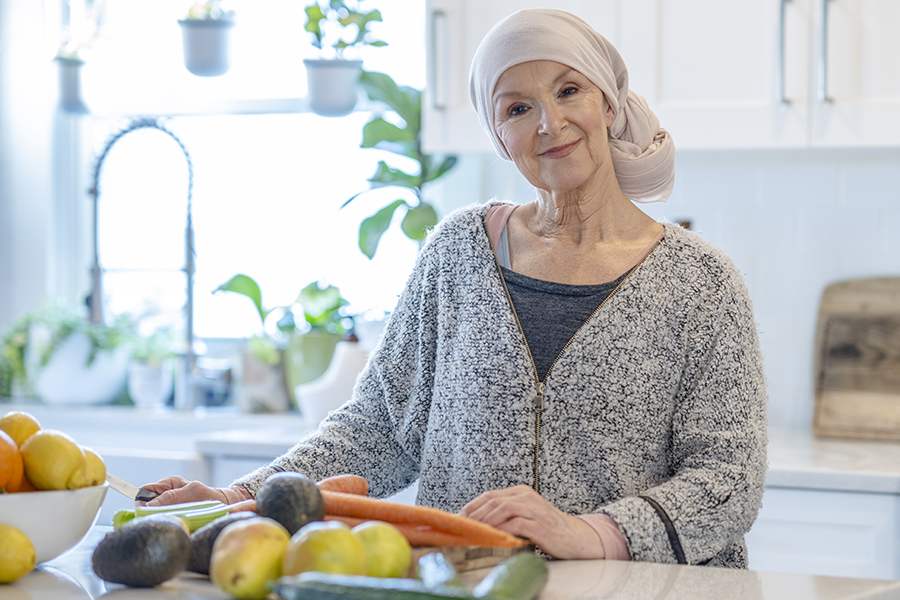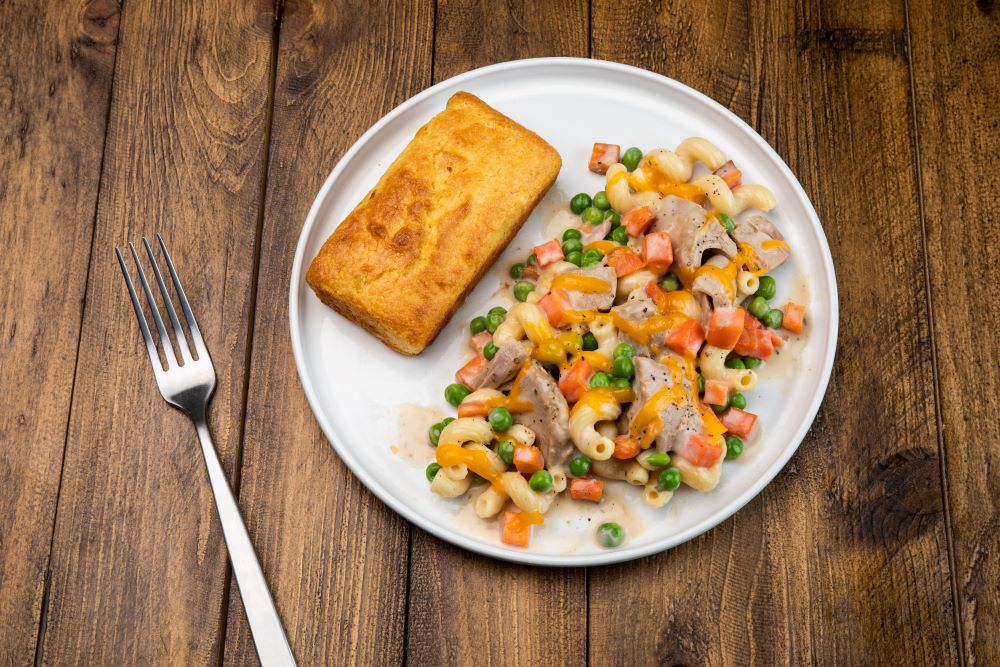Ovarian cancer is projected to be diagnosed in more than 20,000 women in the United States this year, making it the sixth leading cause of cancer-related death among women. Although it can occur at any age, it is most often seen in women between the ages of 55 and 64. Treatment varies depending on the stage and type of ovarian cancer, and may include surgery, chemotherapy, radiation or targeted therapies — all of which can be physically and financially taxing. To help patients through treatment and recovery, nutrition is becoming an increasingly recognized part of cancer care to support strength and healing.
Nutrition challenges
For those undergoing cancer treatment or in recovery, maintaining a well-balanced diet can be a significant challenge. Chemotherapy can often cause nausea and vomiting, appetite changes, mouth sores, fatigue and digestive issues. All of which can affect the ability to get the nutrients needed to keep the body strong and prevent weight loss. Malnutrition affects up to 85% of cancer patients and can make it more difficult to tolerate treatment, fight infections, maintain energy levels and move toward recovery.
Many ovarian cancer patients experience muscle loss, known as cachexia, which can greatly affect their quality of life. This condition occurs in about 50% to 80% of all cancer patients and is linked to treatment difficulties, slower recovery and a higher risk of serious health complications. Good nutrition plays a vital role in managing these effects, making tailored dietary support an essential part of comprehensive cancer care.
Economic and social challenges
Many women with ovarian cancer face economic challenges, such as employment, limited income and access to nutritious food that could result in food and nutrition insecurity. In addition, cancer patients have compromised immune systems and must be vigilant of being exposed to communicable illnesses in social and public settings, such as going to the store to shop for groceries. These challenges can create obstacles to getting the nutrient-rich meals needed to support healing and recovery.
Addressing challenges with home-delivered medically tailored meals
Good nutrition before, during and after cancer treatment plays a vital part in supporting recovery and overall well-being. Medically tailored meals designed by registered dietitians and professional chefs can often be delivered directly to the home and provide valuable support during and after cancer treatment.
Integrating home-delivered meals into cancer care programs can help:
- Improve access to quality nutrition to reduce food and nutrition insecurity
- Manage, reduce or eliminate the side effects of cancer therapies, while boosting strength and energy
- Enhance immune systems
- Improve treatment and recovery outcomes
- Ease the stress and strain of meal shopping, prep and clean upon patients, families and caregivers
- Reduce exposure to the public by not having to grocery shop
- Lower overall health care costs
National Ovarian Cancer Coalition use of medically tailored meals
To help those affected by ovarian cancer access proper nutrition during treatment, the National Ovarian Cancer Coalition (NOCC) launched the TEAL Comfort for the Soul program in 2020. Created in response to the heightened risks posed by COVID-19, especially for immunocompromised patients, the program was designed to reduce exposure to public spaces while also addressing critical gaps in nutrition access and support.
Jennifer McClendon, MCHES, senior manager of education and mission programs at NOCC shares, "Nutrition isn't just about food, it's about strength, resilience, and healing. It fuels the body through treatment, helps manage side effects, and supports overall well-being. By providing nourishing meals, we give survivors the chance to focus on recovery, and not worry about their next meal."
Working with Mom’s Meals® first as part of the pilot program and then as the sole meal provider in 2022, each program participant receives 36 medically tailored meals over the course of six months, aligning with the typical ovarian cancer treatment timeline. Each meal arrives ready to heat and eat to help remove the burden of grocery shopping and cooking during an already challenging time.
The program has provided more than 52,000 Mom’s Meals to over 2,000 individuals nationwide. The 2024 NOCC program impact report shares participants have responded positively to the program, where 85% shared that having meals delivered helped relieve both physical and mental stress, while giving them access to healthy, nutritious food options.
In addition to the meals, participants can speak with registered dietitians at Mom’s Meals for personalized nutrition counseling and education. This support can be especially helpful since it often takes a month to get an appointment with an oncology nutritionist, and access to specialized guidance is limited. The TEAL Comfort for the Soul program shows how medically tailored meals paired with nutrition counseling and education makes a meaningful difference in the lives of cancer patients, especially those navigating treatment with limited support or access.
Mom’s Meals food as medicine solutions
As we continue to improve care for those facing ovarian cancer, it’s time to view food as more than just fuel, it’s medicine. Mom’s Meals provides the most comprehensive food as medicine solutions nationwide and is setting the standard in the food as medicine space with real-world results.
Our home-delivered medically tailored meals are at the core of the integrated solutions we offer. Additional offerings include produce and pantry boxes, oral nutrition supplements, shelf-stable, halal and kosher meals, and nutrition counseling and education. Cancer patients, families and caregivers are navigating an already overwhelming experience. We understand the prospect of making a nutritious home-cooked meal can seem daunting. To remove the hassle and guesswork of mealtime, we offer a wide range of high-protein meals crafted to support cancer patients.
Protein+ menu options from Mom’s Meals:
- Contain at least 600 calories and 25 grams of protein per meal
- Have been developed with input from registered dietitians specializing in oncology and in accordance with guidelines from the American Institute for Cancer Research
- Are home delivered and ready to heat and eat in minutes
Discover more about Mom’s Meals cancer support meals and nutrition.




